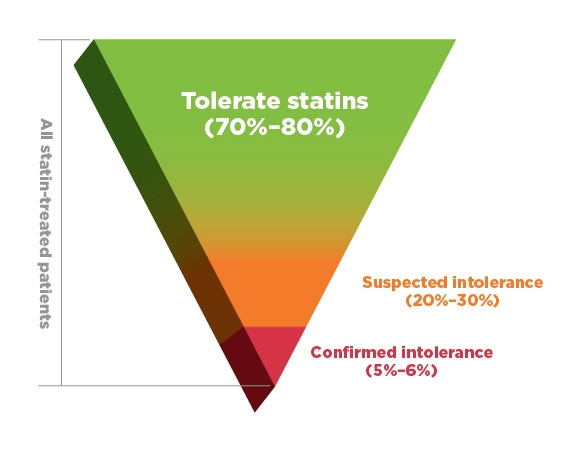Statin Intolerance, a Clinical Phenomenon
Growing and popular clinical challenge is worth reviewing
By Peter A. McCullough, MD, MPH
Nearly all my patients believe they are statin-intolerant even before taking their first dose! Popular figures in the health freedom movement have spoken out against these commonly used generic drugs which are over-the-counter in many countries. They are used to lower total and LDL-cholesterol and through that mechanism reduce the risks of atherosclerotic heart disease. I used Alter AI to develop this update on the popular problem of statin intolerance.
Introduction
Statins (3‑hydroxy‑3‑methyl‑glutaryl‑coenzyme A reductase inhibitors) are first‑line agents for the prevention of atherosclerotic cardiovascular disease (ASCVD). They reduce LDL‑cholesterol (LDL‑C) by 25–55 % and lower cardiovascular morbidity and mortality ¹. Despite robust efficacy, patient adherence is limited by adverse effects collectively termed statin intolerance—a growing clinical challenge that impairs therapy effectiveness and complicates secondary prevention ². Understanding its true prevalence, underlying biology, and management strategies is essential for rational lipid therapy.




